Evaluating Country Programmes - OECD Online Bookshop
Evaluating Country Programmes - OECD Online Bookshop
Evaluating Country Programmes - OECD Online Bookshop
You also want an ePaper? Increase the reach of your titles
YUMPU automatically turns print PDFs into web optimized ePapers that Google loves.
<strong>OECD</strong> 1999<br />
<strong>Country</strong> Programme Planning and <strong>Country</strong> Programme Evaluation within SDC<br />
– The draft is distributed to all involved parties and a consultation meeting is<br />
organised where the Political Affairs Division (FDFA) provides its foreign policy<br />
assessment.<br />
– The document is cleared by the Geographical Division and submitted with<br />
the minutes of the consultation meeting to different committees and directorates<br />
outside SDC, and to other interested parties.<br />
– The country programme is approved and signed by the SDC Director. Generally,<br />
FOFEA considers the country programme a reference document. In<br />
recent cases, the co-responsibility of a programme was assured by the cosignature<br />
of the Director of FOFEA (e.g. Bolivia).<br />
Linkage between planning and evaluation<br />
The planning process is determined in the SDC guidelines. However, the way<br />
to elaborate the final country programme document differs between the geographical<br />
divisions according to their organisational culture. The different processes of<br />
elaboration can be defined as follows:<br />
– Elaboration by the co-ordinator/desk officer as a one-person-job (first “generation”<br />
of country programmes).<br />
– Elaboration by the team of expatriates at the co-ordination office.<br />
– Further incorporation of the National Programme Officers (NPOs) and eventually<br />
the project leaders.<br />
– Incorporation of national opinion leaders and/or experts (view from outside).<br />
– A process of linked participatory workshops.<br />
These options for elaboration still coexist within SDC and are due to the historical<br />
development of the different CPs. While some countries have already elaborated<br />
their third country programme and can, therefore, count on a certain<br />
continuity, others have only recently started this process (see Appendix 10.1).<br />
Whether the issue of the country programme is continuity, reorientation or basic<br />
policy decision has an influence on the methodologies chosen and leads to processes<br />
which are adapted to the specific premises as well as to the context of the<br />
country programme. However, there is also an aspect of distinct approaches (inductive<br />
vs. deductive) existing in different geographical divisions, which influence the<br />
choice of methodology (see Section 4 below).<br />
All geographical divisions agree that the evaluation of the former country programme<br />
is a necessary step in the planning of the next one. In most cases, a tendency<br />
towards self-evaluation workshops can be noticed. This approach is<br />
particularly strong in the West Africa Division where an involvement of the partners<br />
in the evaluation as well as in the planning processes is a common practice. The<br />
most evolved approaches in terms of linking participatory processes between<br />
219


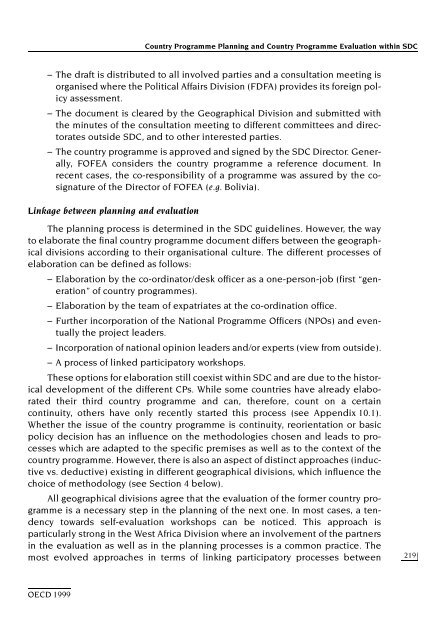


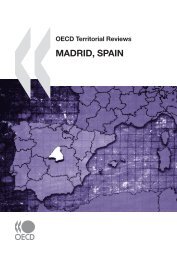



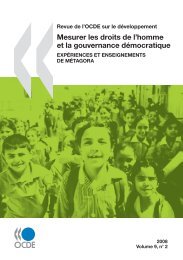
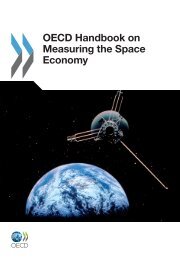
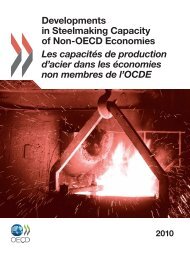
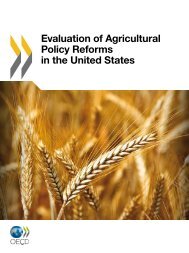
![CQE=U]^\]Z: KAZAKHSTAN - OECD Online Bookshop](https://img.yumpu.com/3915768/1/190x253/cqeuz-kazakhstan-oecd-online-bookshop.jpg?quality=85)